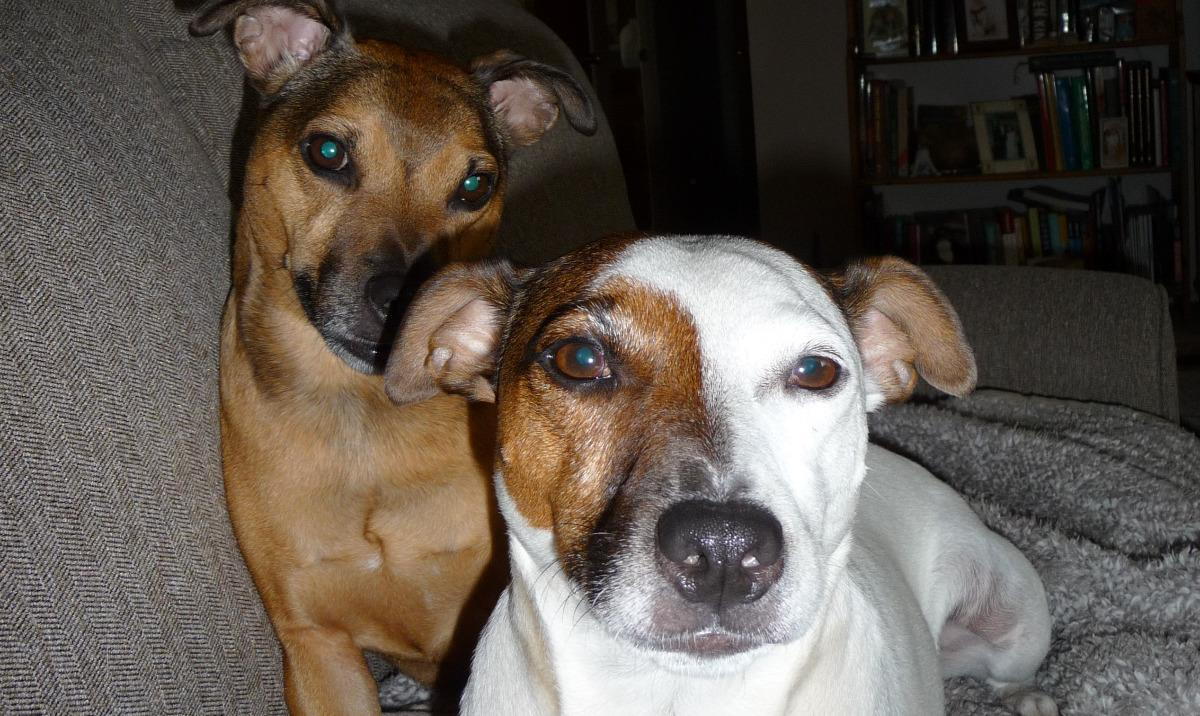Parvovirus Infection

- posted: Jan. 23, 2022
Parvovirus
Parvovirus is a serious viral infection in dogs that can be fatal. Thankfully, with proper vaccination, parvoviral infection (“parvo” for short) is much less common than in the past, but it has not been eradicated and we still see patients affected with parvo today. How do dogs acquire this infection, what are the symptoms, how is it treated and how can it be prevented? Let’s learn more.
First discovered in the 1970’s, there are many types of parvoviruses affecting most mammals, including humans. However, these viruses tend to be species specific and do not readily “jump” from one species to another i.e., dog parvo does not spread to cats or humans, etc. Parvoviruses are highly contagious and readily spread from one dog to another by contact with infected vomit or stool and by contaminating surfaces such as food and water bowls, shoes, clothing and other surfaces. Parvovirus is considered to be ubiquitous (found everywhere) in the environment and is difficult to eradicate as it is very hardy.
Parvo typically affects unvaccinated dogs of any age but young puppies under four months of age are particularly susceptible. The virus attacks dividing cells in the intestinal tract and bone marrow and is shed in the feces. Parvo causes loss of appetite, vomiting and bloody diarrhea which quickly lead to dehydration. Parvo also causes a decrease in white blood cells, fever and lethargy, and abdominal pain. Affected dogs become ill quickly and can die from the disease though survival is vastly improved with prompt treatment. Puppies exhibiting signs of parvo should be seen as soon as possible by a veterinarian so proper diagnosis and treatment can begin.
Parvovirus can be diagnosed by special rapid tests that look for virus in the stool in conjunction with clinical signs and a low white blood cell count. Because it is a virus, there is no specific drug that will kill the virus, but supportive care and treatment to prevent secondary infections is extremely important. Affected puppies are often treated aggressively with intravenous fluids, medications to control nausea and vomiting and antibiotics to prevent secondary bacterial infection that can occur due to damage to the intestinal lining which can allow bacteria in the gut to leak into the bloodstream causing sepsis. Because it is highly contagious, affected dogs are usually confined to an isolation ward to prevent spread throughout a kennel or hospital. Treatment can be expensive and puppies may still die despite proper therapy. If symptoms are mild, outpatient treatment is sometimes possible but affected dogs should be evaluated by a veterinarian to determine an effective treatment plan.
Environmental disinfection is important if you’ve had a puppy affected with parvo, especially if there are other dogs in the household. First and foremost, clean and remove any stool or vomit from the house or yard immediately. Disinfect the area with dilute bleach or other effective viricidal cleaners—ask your veterinarian for recommendations. Some options can also be found here: https://veterinarypartner.vin.com/default.aspx?pid=19239&id=10259151. Wash your hands frequently. Discard any towels, bedding and porous toys to prevent reinfection. Consider steam cleaning carpets or furniture. Thoroughly wash bowls or replace them.
It is almost impossible to prevent exposure to parvovirus and it can be difficult to treat once infected, but parvo is easily prevented by proper vaccination. Puppies should receive a series of vaccines starting at 7-8 weeks of age and continuing every 3-4 weeks until the puppy is 16 weeks of age or older. Parvo is typically combined in a vaccine that also prevents distemper and other viruses. Multiple vaccine boosters are required to build proper immunity and dogs should continue to receive vaccines every 1-3 years to make sure immunity does not wane. While socialization is very important and puppies do not need to be fully vaccinated to go for walks or to interact with people and known, vaccinated, dogs, do use caution with puppies who are not fully vaccinated in interacting with large groups of dogs such as at a dog park, doggie daycare or similar situation.
Parvovirus is an extremely serious infection of young puppies but many pups do survive if they receive rapid and proper treatment and proper vaccination is extremely effective and important in preventing this deadly disease.
This blog brought to you by the Patton Veterinary Hospital serving Red Lion, York and the surrounding communities.
https://www.avma.org/resources-tools/pet-owners/petcare/canine-parvovirus
Location
Patton Veterinary Hospital
425 E Broadway
Red Lion, PA 17356
